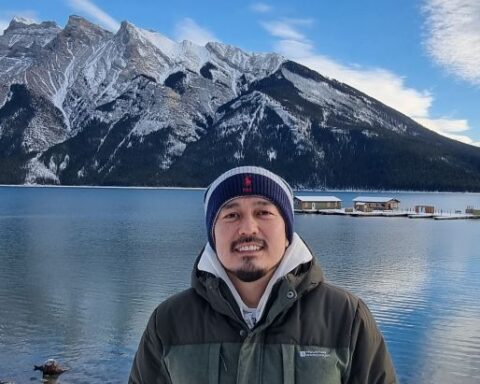Jose Duque, an immigrant from Venezuela, is using music to keep children in band practice and out of trouble on the streets.
In his native country, Duque participated in the El Sistema program, for over 16 years as an orchestra player, music teacher, and later, as a regional co-ordinator.
The program, which is run in countries around the world, gives children from diverse backgrounds a safe and fun place that fosters discipline, increased self-esteem and a sense of community.
When Duque immigrated to Calgary 10 years ago, he thought there were no children living in poverty in the city.
“I thought Canada was paradise,” says Duque, adding he imagined no one in Calgary would need a program like El Sistema.
Duque soon started to see the cracks in his new homeland.
The opportunity to dream
However, Duque soon started to see the cracks in his new homeland – Canada wasn’t the perfect paradise he imagined.
At Our Lady of Guadalupe Church, he met many low-income families who had difficulties keeping their children away from drugs, gangs and isolation.
“I wanted to offer disadvantaged children the opportunity to dream,” says Duque.
That is why five years ago, he decided to start a free after school music program at the church.
Now, with the support of International Avenue Arts and Culture Centre (IAACC), Duque’s small initiative has grown into the Calgary Multicultural Orchestra (CMO) – a full-time program with three professors and 60 students based on the El Sistema program model.
The program operates in Calgary’s Forest Lawn area, which has double the percentage of low-income households than the rest of the city, according to Statistics Canada. IAACC funding provides children with free musical instruments and music lessons every weekday from 4 to 6 p.m.
Jose Antonio Abreu, founder of El Sistema youth orchestra system in Venezuela, shares the story behind the program.
Diverting children and youth from the streets
Duque says CMO will create positive outcomes similar to other El Sistema projects around the world – a decrease in juvenile crime and school drop-out rates. However, to achieve his dream he requires more participation from the community.
“Some people believe that orchestral music is something exclusive, but it isn’t true.”
“If we could get 1,000 children from Forest Lawn and other communities in the northeast we could create a real change,” says Duque.
According to a study by the Inter American Development Bank for every dollar invested in the El Sistema program in Venezuela, it reaped about $1.68 in social dividends – with benefits such as a decline in juvenile delinquency and improvement in school attendance.
The biggest rate of juvenile delinquency occurs between 4 and 7 p.m., explains Duque, which is the timeframe when children spend more time alone after school and before their parents return from work in the evening.
“We are giving a space to these kids to do something special,” he says. “We are taking them away from the streets, the drugs and the gangs.”
Putting a focus on inclusivity and tolerance
Amédée Waters, program administrator for the CMO, says the program aims to bring together children from all incomes, races and religions.
“The idea is to create a sense of inclusivity, tolerance and community,” says Waters. “Some people believe that orchestral music is something exclusive, but it isn’t true.”
“[T]he program makes children and parents focus on what we have in common instead of what makes us different.”
Mark Lobnowcs, whose 11-year-old child participates in the CMO, agrees that the program creates more tolerance.
“I think it is marvellous that the program makes children and parents focus on what we have in common instead of what makes us different,” says Lobnowcs.
He also says the program is a great opportunity to learn music from top professional musicians. “It is amazing that someone with Jose’s qualifications is doing something like this for free.”
Hikmat Kafi, whose seven-year-old daughter has been with the CMO for over two years, says that the program has helped her daughter to open up to other children.
Kafi arrived to Canada from North Sudan 10 years ago. She says that her daughter’s participation in the CMO has had a positive influence on her two brothers. “If you see your child happy, then all the family is happy too,” she shares.
The program costs IAACC over $2,300 per child per year, and funding can be an issue, according to Waters.
Right now the program has a waiting list of over 30 children, but it doesn’t have the funds to pay for teachers and instruments.
“It is always a struggle to find the funds,” says Waters. As a result, the program is always looking for volunteers and used musical instruments.




